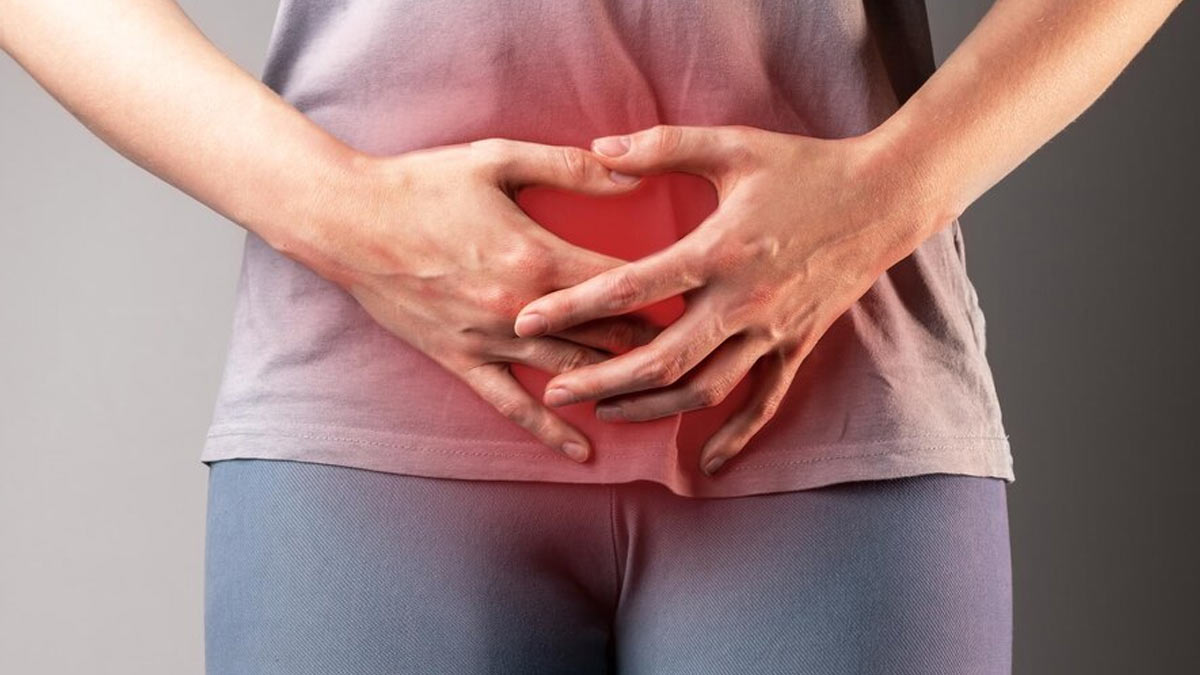
Urinary Tract Infection (UTI) is an infection caused by the Escherichia coli (E. coli) bacteria. It occurs when gastrointestinal bacteria spread from the anus to the urethra, a part of the urinary system that helps urine leave the bladder and your body. When this happens, various symptoms occur in the body, some common, whereas others remain unusual.
Table of Content:-
Speaking with the OnlyMyHealth team, Dr Nitin Shrivastava, Senior Consultant - Urology, Artemis Hospital, Gurgaon, discusses these telltale and uncommon signs, particularly focussing on whether or not UTI can cause gastrointestinal issues like diarrhoea. Continue reading to learn all about it.
Also Read: 5 Types Of People Most At Risk Of Urinary Tract Infection (UTI)
Common Symptoms Of Urinary Tract Infection (UTI)

Interestingly, women are up to 30 times more likely than men to develop UTIs, according to the Office on Women's Health. Unfortunately, 4 in 10 women who get UTIs will develop the infection once more in six months, the health body notes. This is mainly because a woman's urethra is shorter than a man's, making it easier for the bacteria to pass from the anus to the urinary system.
Common symptoms include:
- A strong, persistent urge to urinate
- A burning sensation during urination
- Frequent urination of small amounts
- Cloudy urine that has a strong odour
- Blood in the urine, in some cases
- Lower abdominal pain or pelvic discomfort
Men, on the other hand, may experience rectal pain, says Dr Shrivastava, adding that other symptoms can include feeling tired or shaky and sometimes a low-grade fever.
In severe cases, especially if the infection spreads to the kidneys, it may cause high fever, chills, back or side pain, nausea, and vomiting.
Can UTI Also Cause Diarrhoea?

Typically, UTIs do not directly cause gastrointestinal symptoms like diarrhoea, says Dr Shrivastava, adding that they are localised to the urinary tract, which includes the bladder, urethra, and sometimes the kidneys.
However, some people may experience general symptoms, such as malaise or nausea, which can indirectly affect the digestive system.
Diarrhoea is usually associated with gastrointestinal infections or other digestive disorders.
However, while a UTI itself doesn't cause diarrhoea, the body’s response to an infection, including possible antibiotic treatment, can sometimes lead to gastrointestinal disturbances, according to Dr Shrivastava. In fact, according to the Mayo Clinic, about one in five people who take antibiotics develop antibiotic-associated diarrhoea.
Another explanation behind UTI-related diarrhoea is the spread of bacteria from an infected urinary tract to the gastrointestinal tract and kidney, which can cause diarrhoea.
One 2021 study published in the International Journal of Contemporary Pediatrics looked at children with diarrhoea to see if they also had UTIs. Researchers examined 120 children and found that 17% had UTIs, with E. coli being the most common bacteria causing the infection. Most children with UTIs were girls between six months and one year old.
Also Read: When Diarrhoea Can Become A Serious Health Issue? Read On
How To Distinguish Between UTI Symptoms And Gastrointestinal
![Urinary tract infection symptoms]() Infection?
Infection?
Distinguishing between a UTI and a gastrointestinal infection is all about paying attention to the primary symptoms and their location, according to Dr Shrivastava.
“A UTI typically causes urinary symptoms such as a burning sensation during urination, frequent urination, and cloudy or bloody urine. In contrast to this, a gastrointestinal infection primarily causes digestive symptoms like diarrhoea, vomiting, and abdominal cramping. If both urinary symptoms and diarrhoea are present, it may indicate two separate conditions. A healthcare provider may perform urine tests to confirm a UTI and stool tests to identify gastrointestinal infections. Noting the sequence of symptoms' onset can also help in diagnosis,” he shares.
How To Manage Symptoms?
In cases where a person experiences both painful urination and diarrhoea, one must aim to manage the discomfort and pain. Strategies include:
- Drinking plenty of fluids to stay hydrated
- Avoiding irritating foods and beverages
- Over-the-counter medications to relieve symptoms, but seek medical attention if symptoms persist for more than a few days, worsen, or are accompanied by high fever, severe abdominal pain, or blood in the urine or stool.
- Get tested to determine the cause of the symptoms and receive appropriate treatment.
- Aim for early medical evaluation, especially if the person has underlying health conditions, is elderly, or is pregnant.
[Disclaimer: This article contains information provided by an expert and is for informational purposes only. Hence, we advise you to consult your own doctor if you are dealing with any health issues to avoid complications.]
Also watch this video
How we keep this article up to date:
We work with experts and keep a close eye on the latest in health and wellness. Whenever there is a new research or helpful information, we update our articles with accurate and useful advice.
Current Version
 Infection?
Infection?